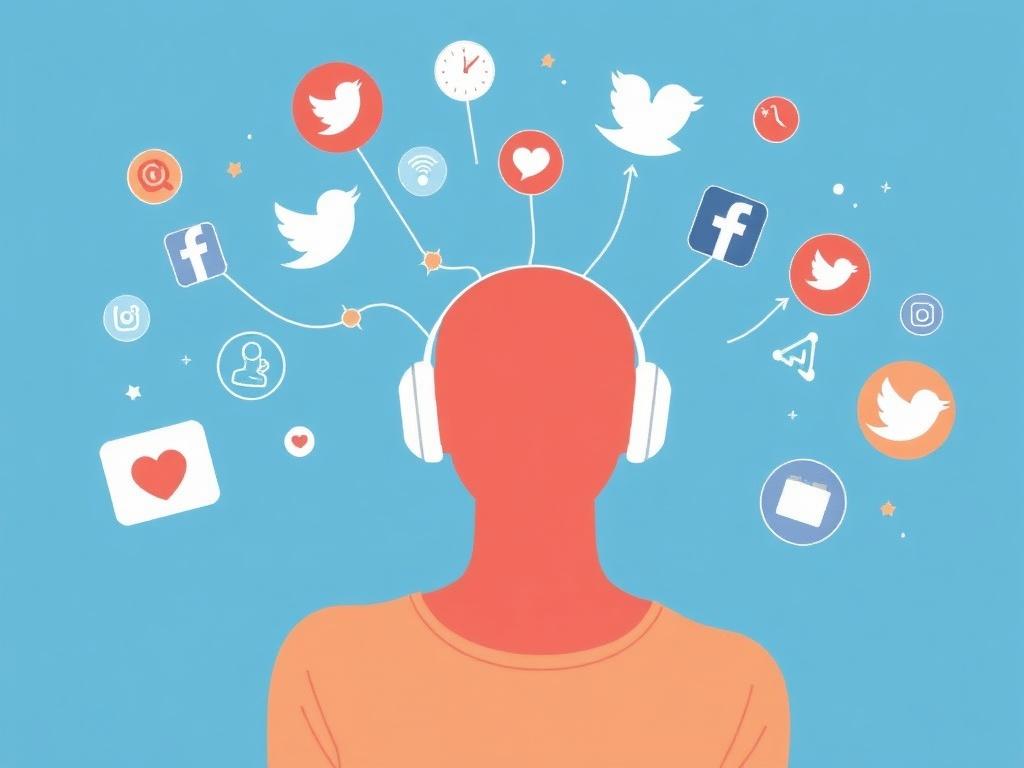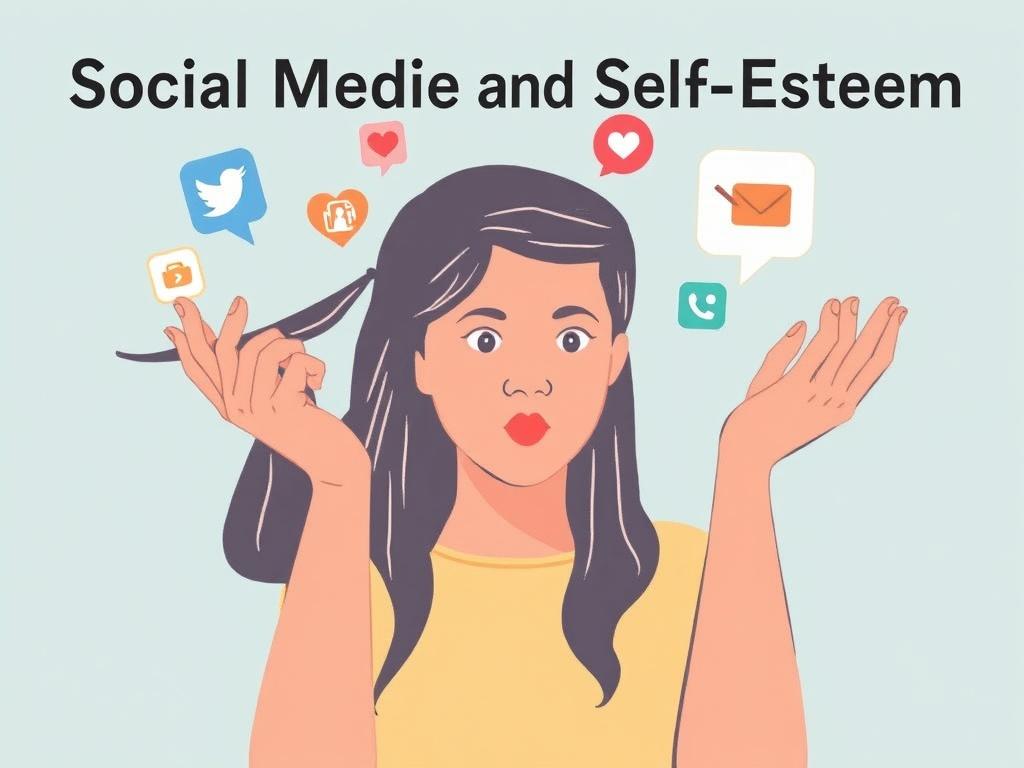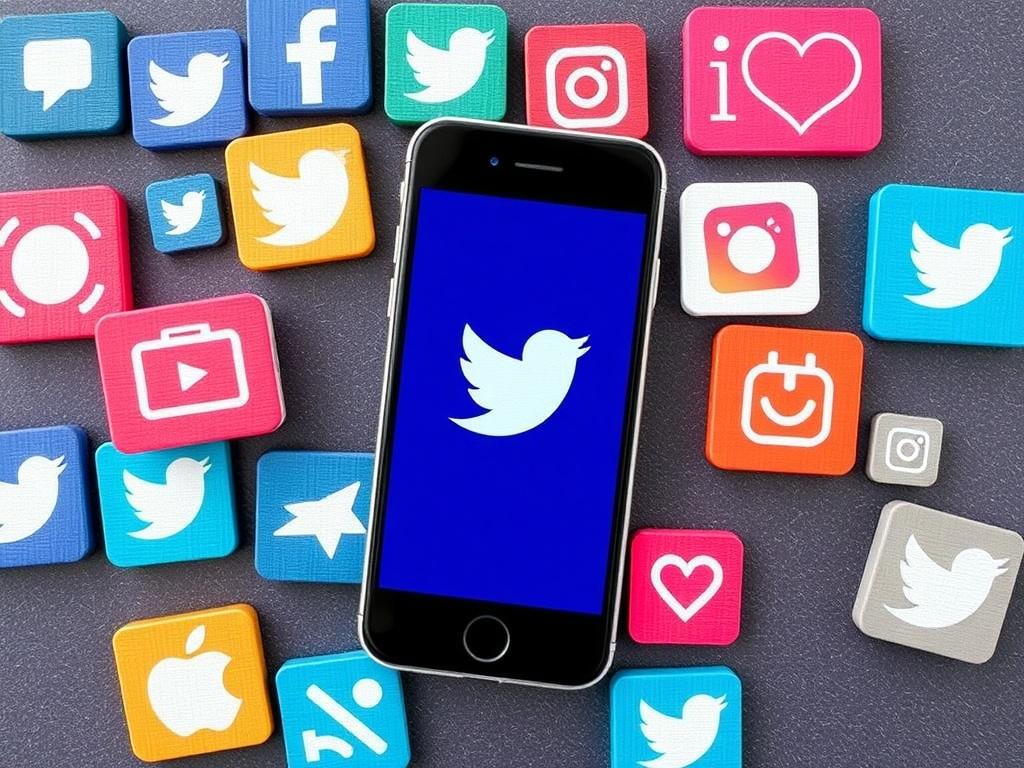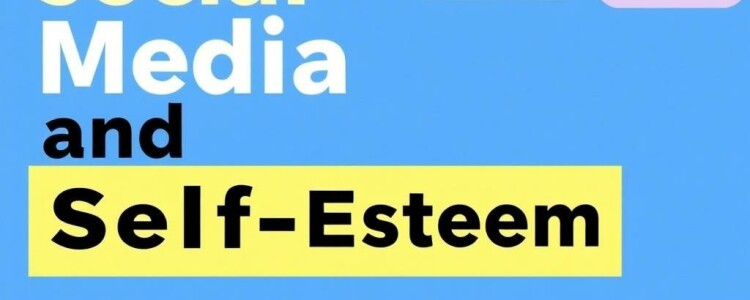Understanding the Connection Between Social Media and Self-Esteem
In today’s digital age, social media has become an integral part of our lives. Platforms like Instagram, Facebook, Twitter, and TikTok offer us the chance to connect with friends, share experiences, and discover new interests. However, while social media provides numerous opportunities for engagement, it also has a significant impact on our self-esteem. Understanding how social media and self-esteem interact is essential for maintaining mental wellness in a world where online presence can sometimes feel more important than real life.
When we scroll through our feeds, we are exposed to a flood of images, posts, and updates that often highlight the best moments of others’ lives. This constant exposure to seemingly perfect lives and idealized versions of beauty and success can lead to feelings of inadequacy or low self-worth. Social comparison theory explains this phenomenon well: people tend to evaluate themselves based on comparisons with others, and social media creates a nonstop stream of comparison points that can harm self-esteem.
How Social Media Influences Self-Esteem Positively
Not all effects of social media on self-esteem are negative. In fact, when used thoughtfully, social media can be a tool for building confidence and fostering a positive self-image. Many users find communities where they feel a sense of belonging and acceptance, which can significantly boost their self-esteem. Platforms offer opportunities to share accomplishments, creativity, and moments of joy with supportive audiences.
Social media also allows individuals to express their identity freely, connecting with like-minded people and gaining validation for who they are. This validation, in the form of likes, comments, and shares, can enhance how people perceive themselves. Teenagers and young adults, in particular, may experience an increased sense of self-confidence when they receive encouraging feedback from their peers online.
Positive Impact Examples
- Joining supportive interest groups or communities
- Showcasing talents and creative projects
- Receiving affirmation through positive comments and likes
- Finding role models who inspire self-growth
Negative Effects of Social Media on Self-Esteem

Despite these benefits, the negative effects of social media on self-esteem are well-documented and widespread. One major issue is the curated nature of content: users tend to post images that highlight their best qualities, often using filters and editing tools to enhance their appearance. This curation creates an unrealistic standard of beauty and lifestyle, making it easy for others to feel they fall short in comparison.
The pressure to gain approval through likes and followers can also cause anxiety and reduce self-worth. When individuals tie their self-esteem to these external markers, fluctuations in online feedback can lead to emotional rollercoasters. Cyberbullying and negative comments additionally harm self-esteem, especially among younger users who are more vulnerable to peer influence.
Common Negative Effects Include:
- Body image dissatisfaction due to unrealistic beauty standards
- Fear of missing out (FOMO) and social anxiety
- Decreased self-worth linked to online validation metrics
- Exposure to cyberbullying and online harassment
Research Findings on Social Media and Self-Esteem

Over the years, researchers have conducted numerous studies to explore the relationship between social media and self-esteem. While results vary depending on age, usage patterns, and personality traits, many studies confirm that excessive or passive use of social media correlates with lower self-esteem.
For instance, a study published in the Journal of Social and Clinical Psychology found that reducing social media use to about 30 minutes per day led to significant reductions in loneliness and depression, positively impacting participants’ self-esteem. Another noteworthy finding is that active engagement—such as commenting and direct messaging—is less harmful and potentially beneficial compared to passive scrolling or lurking.
Summary of Research Insights
| Research Aspect | Findings |
|---|---|
| Time Spent on Social Media | More than 2 hours daily linked to decreased self-esteem |
| Type of Usage | Active engagement boosts self-esteem; passive use lowers self-esteem |
| Age Group Sensitivity | Teenagers and young adults are more vulnerable |
| Impact of Feedback | Positive feedback can enhance self-esteem, negative feedback harms it |
Tips for Maintaining Healthy Self-Esteem While Using Social Media

Given the complex impact of social media on self-esteem, it’s important to approach usage mindfully. Developing habits that foster positive self-regard can help you enjoy social media without damaging your mental health. Here are several actionable tips:
1. Limit Time Spent Online
Set daily limits to avoid endless scrolling, which often leads to negative comparisons and feelings of low self-worth. Apps and built-in phone features can help track and restrict your usage.
2. Focus on Active Engagement
Instead of simply scrolling passively, interact meaningfully with content and people. Comment, message, and share your own thoughts to create positive social connections.
3. Curate Your Feed Carefully
Follow accounts that inspire and uplift you rather than those that trigger insecurity or envy. Don’t hesitate to unfollow or mute negative influences.
4. Practice Self-Compassion
Remember that social media often shows highlights, not the full reality. Be kind to yourself and avoid harsh self-judgment based on online comparisons.
5. Take Breaks and Detox
Regularly disconnecting from social media can refresh your mental state and help you focus on real-life relationships and activities that affirm your worth.
Self-Esteem Maintenance Checklist
- Limit social media use to 30–60 minutes per day.
- Engage actively rather than passively consuming content.
- Follow positive, diverse, and authentic accounts.
- Practice gratitude and focus on your own achievements.
- Take social media breaks regularly.
The Role of Parents, Educators, and Society
The influence of social media on self-esteem is especially important for young people, who are still developing their identities. Parents and educators play a vital role in guiding responsible social media use and fostering media literacy. Teaching young users to critically evaluate online content and distinguish between real and curated images helps protect their self-esteem.
Society at large also has a responsibility to promote inclusive and realistic depictions in media and advertising. Campaigns promoting body positivity, diversity, and mental health awareness contribute to a healthier environment where social media can be a force for good rather than harm.
Effective Strategies for Support
- Encouraging open conversations about feelings related to social media
- Providing education about digital literacy and emotional resilience
- Promoting diverse representation in media
- Implementing policies to combat online harassment
The Future of Social Media and Self-Esteem
As social media platforms evolve, new trends and features will continue to shape how users interact and how these interactions influence self-esteem. Features such as disappearing stories, customizable filters, and augmented reality effects provide more ways to present oneself, sometimes blurring lines between reality and digital enhancement.
Emerging technologies like virtual reality (VR) and the metaverse present both opportunities and challenges for self-esteem. Immersive digital environments might offer fresh ways to connect and express identity but may also heighten the risk of detachment from reality and increased social comparison.
Fortunately, platform developers and mental health advocates are increasingly collaborating to design tools and initiatives that promote healthy social media use. Examples include hiding «like» counts to reduce validation pressure and providing mental health resources directly through apps.
Potential Future Changes
| Trend | Impact on Self-Esteem | Possible Solutions |
|---|---|---|
| Disappearing Content | Reduced pressure for perfection, but could increase impulsive posting | Promote mindful posting and reflection |
| Augmented Reality Filters | Can distort self-image and expectations | Encourage transparency and filter disclosures |
| Virtual Reality and Metaverse | Enhances self-expression, risk of detachment from real self | Balance VR use with offline activities |
| AI-Powered Moderation | Potentially reduces harmful content | Continuous improvements and ethical guidelines |
Practical Exercises to Build Self-Esteem in the Social Media Era
It’s important not only to manage social media habits but also to actively strengthen self-esteem from within. Here are practical exercises anyone can try to nurture a positive self-image despite the challenges social media might present.
Daily Gratitude Journaling
Writing down three things you appreciate about yourself or your day helps shift focus toward positive aspects and away from harmful comparison.
Affirmations
Repeating simple, positive affirmations like “I am enough” or “I am worthy of love and respect” daily reinforces a healthy self-view.
Mindful Social Media Use
Before logging on, take a moment to set your intention. Are you seeking connection, entertainment, or distraction? Being mindful helps regulate emotions and reduces the risk of harmful engagement.
Limit Comparison Triggers
Identify which social media accounts or habits most frequently lower your self-esteem and take steps to unfollow or reduce exposure.
Reconnect with Offline Activities
Spend time on hobbies, exercise, or socializing face-to-face, which build genuine confidence and self-esteem beyond virtual validation.
Summary Table of Social Media’s Impact on Self-Esteem
| Factor | Positive Effects | Negative Effects |
|---|---|---|
| Content Exposure | Inspiration, support networks | Unrealistic standards, envy |
| User Engagement | Community, validation | Anxiety over approval, cyberbullying |
| Time Spent | Connection enhancement | Lower self-esteem if excessive use |
| Feedback Received | Boosts confidence if positive | Damages self-worth if negative |
Conclusion
The relationship between social media and self-esteem is complex, weaving together positives and negatives in ways that impact users differently depending on how they engage with digital platforms. Social media can be a powerful tool for building confidence, finding community, and celebrating individuality, but it also holds the potential to undermine self-esteem through unrealistic comparisons, validation seeking, and exposure to negativity. Awareness is key: by understanding this connection, setting healthy boundaries, and practicing self-compassion, we can navigate the digital mirror with greater resilience and clarity. As technology continues to evolve, it remains critical that users, educators, and platform creators work together to foster an online environment that uplifts rather than diminishes our sense of self-worth. With mindful use and supportive strategies, social media can become a space that enhances, rather than threatens, our self-esteem.




















